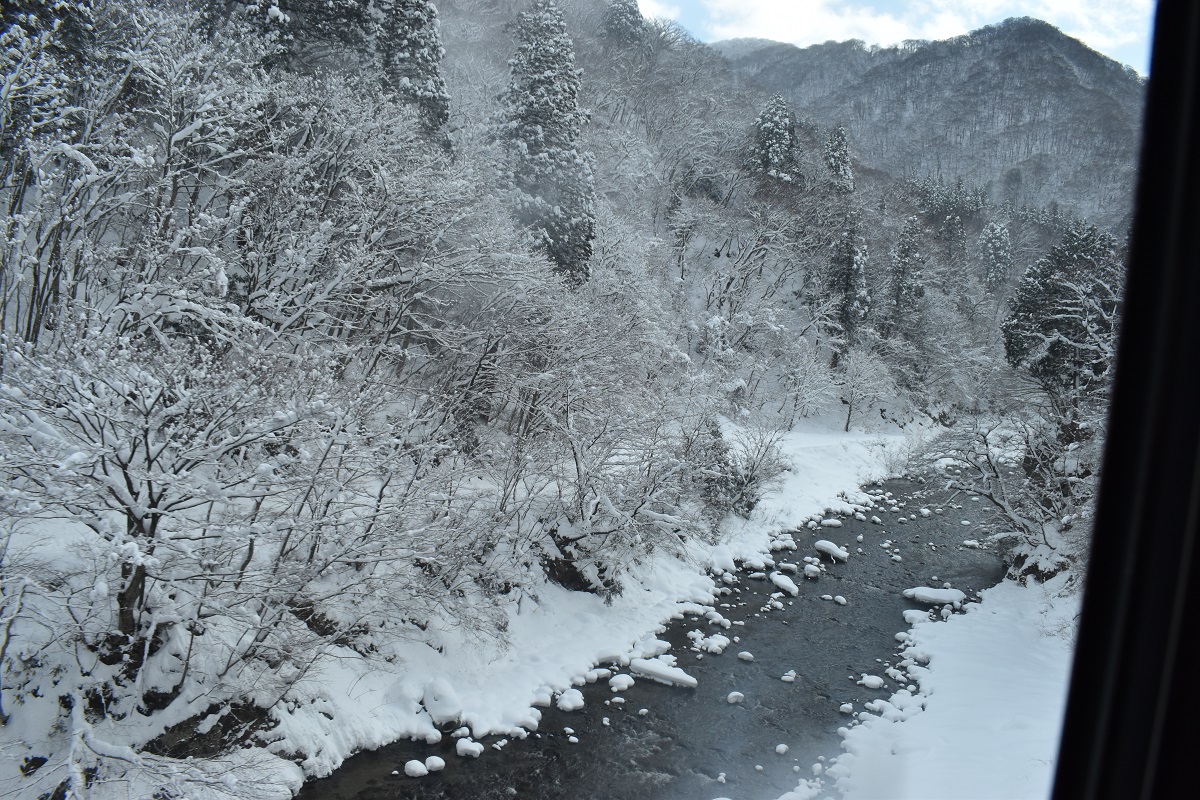The town “Karatsu” was so crowded with people that I wondered where all these people were coming from in such a rural town. Through the crowd, 14 two-ton floats made in the late Edo period race down the narrow streets one after the other. Each community has its own float, but the number of people pulling these floats is incredible. The floats are decorated with lion masks, warrior helmets, sea bream, and dragon ornaments that swing like pendulums, giving the floats a sense of dynamism. The entire float is made of gorgeous lacquer.
When turning into an alley, the persons sitting at the front of the float brake with the soles of their feet while the persons at the back forcefully turn the float, leaving clear brake marks on the road. To be honest, the enormous number of pullers at the front are not actually very useful in pulling the float, and it is moved by the more powerful people in front and behind the float, who are right next to it.

The sacred object enshrined at Karatsu Shrine is carried between the floats as a portable shrine, with the priest sitting on it. He didn’t move an inch until it passed right in front of me, so I thought it was a doll, but it was actually a real person.

The highlight is when the float is pulled into the sandy rest stops outside of shrine. As with any shrine, the deity travels away from the shrine once a year, and the vehicle on which it rides is called “Mikoshi.” It seems that the gods get bored of staying in the same place for a whole year, so this journey is the festival itself. The rest stops at the destinations are called “Otabisho.”
Returning to the main topic, at the Karatsu Kunchi festival, the rest stops are located on sandy ground on the coast, so it is hard to understand why the floats are pulled into such sandy ground that they would sink into it, but this scene is certainly the most exciting. The floats cannot be pulled into the designated place in one go, so they are pulled in with repeated shouts. The floats line up in a single line, turning back and forth like a car parking in a garage.
You can find your view points of Karatsu Kunchi on the following map published by Karatsu tourism office
Near this rest stops is the former Takatori residence, the mansion of a coal mining magnate. Inside the huge house, cedar sliding doors have been removed to create a path for performers to emerge from the left, and the tatami mats on the stage have been removed to reveal a Noh stage underneath. There is a hollow stone underneath the stage, and when performers stomp on it, the sound echoes loudly. This is how he would entertain guests at his home to watch Noh performances. It’s a truly luxurious story.
Furthermore, in this mansion, the best rooms are not those on the south side, which get plenty of sunlight, but those on the north side, which face the coast and offer a miniature garden of islands floating in the Genkai Sea, peeking through the pine forest. Just like in England, rooms facing north are considered superior.
A short walk from the former Takatori residence along the remaining stone walls of the castle town will take you to the restored Karatsu Castle. If you climb up to the castle tower, you can enjoy a 360-degree view of Karatsu city, the sea, and the arching Niji-no-Matsubara (one of Japan’s three great pine groves). However, you can still see it in the garden in front of the castle tower without having to pay to climb it.
Detour
On the way back to the town bustling with the festival, I came across the wharf for the ferry to Takashima. Takashima is a small, trapezoidal island floating in Karatsu Bay, and its shape suggests that it is an island that brings good fortune. Once on the island, you’ll find Hohto Shrine, a popular spot where prayers are said to grant you the blessing of winning the lottery. You’ll want to get at least the money back for the prayer fee and the ferry ticket…















































































































































































